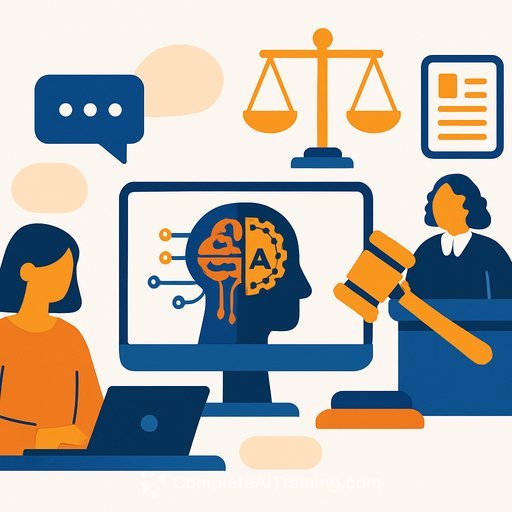Stanford Law Launches liftlab to Build Better, More Accessible Legal Services
September 15, 2025 - Stanford, CA
Stanford Law School has launched the Legal Innovation through Frontier Technology Lab (liftlab) to examine how AI can improve legal work-enhancing advice quality, broadening access, and training the next generation of lawyers. Led by Professor Julian Nyarko and Executive Director Megan Ma, liftlab combines research, prototyping, and hands-on collaboration with industry.
What Makes liftlab Different
Most legal tech targets efficiency. Liftlab is focused on outcomes-how AI can help lawyers deliver clearer advice, prevent disputes before they start, and scale expertise across teams.
"The legal profession has not just an opportunity, but an obligation, to do more than just boost efficiency," said Julian Nyarko, faculty director of liftlab and co-chair of the Stanford Law AI Initiative. "We want to understand how technology can surface the expertise and reasoning that underpin the legal system in order to deliver better legal advice, prevent disputes, efficiently train new lawyers, and share the kinds of strategic insights that today only experienced practitioners tend to be able to leverage."
Liftlab's founding advisors include Harvey (legal technology), and law firms Cleary Gottlieb, Davis Wright Tremaine, and Vorys. The lab's work is industry-informed yet grounded in an independent academic mission to produce rigorous, publicly valuable research.
"In liftlab, Nyarko and Ma are bringing together rigorous research and real-world collaboration to shape how emerging technologies can enhance legal judgment, training, and access to justice," said George Triantis, the Richard E. Lang Professor of Law and Dean of Stanford Law School.
Built on Stanford Law's AI Track Record
Liftlab is part of the Stanford Law AI Initiative, which coordinates AI-related work across the school and its broader network. The foundation includes decades of scholarship through CodeX-the Center for Legal Informatics-and active programs across IP, health care, and professional responsibility. Partners across campus include Stanford's Human-Centered AI Institute (HAI), which supports research at the intersection of AI and society. Learn more about HAI.
From Research to Prototypes You Can Use
Liftlab collaborates with computer scientists and linguists to build and test practical tools: multi-agent simulations to model how legal teams work, multimodal systems to analyze processes like depositions, and legal-specific language models that handle complex drafting and analysis.
One example: the Contractual Drafting Risk Assessment tool, developed with HAI. It analyzes thousands of court opinions on contract interpretation to flag language that has historically led to disputes-helping drafters write clearer, more resilient agreements.
Beyond drafting, liftlab is building training simulations to help junior lawyers and students practice negotiation and other core skills. In collaboration with the Mills Legal Clinic, the team is also developing a multilingual voice-based intake specialist for the Immigrants' Rights Clinic, allowing prospective clients to call or text for initial screening while attorneys focus on substantive work.
"Our collaborations allow us to develop tools shaped by actual user needs and capable of delivering meaningful value in professional settings," said Megan Ma, liftlab's executive director. "They also help bring transparency and clarity to the metrics that define quality. Many law firms are eager to experiment with AI tools, but lack the time or infrastructure to evaluate these tools rigorously. That's where we come in-offering a research-backed, neutral space to test, refine, and develop what actually works."
What This Means for Legal Teams
- Raise the floor on drafting quality by preemptively spotting dispute-prone clauses.
- Shorten time-to-ramp for juniors with simulation-based training and feedback loops.
- Improve client service with structured intake, triage, and multilingual support.
- Adopt measurable evaluation frameworks before piloting AI tools with clients.
- Build governance around data security, confidentiality, and model oversight.
- Partner early with researchers to test workflows against real practice constraints.
About Stanford Law School
Stanford Law School is a leading institution for legal scholarship and education. Alumni shape law, policy, business, and technology. Faculty appear before the Supreme Court, testify before Congress, publish influential research, and engage the national press as legal and policy experts. The school's model emphasizes interdisciplinary training, hands-on experience, global perspective, and public service.
Level Up Your Team's AI Capability
If you're building internal AI fluency and evaluation skills, explore curated programs that map to roles and skills. Browse AI courses by job.
Your membership also unlocks:






